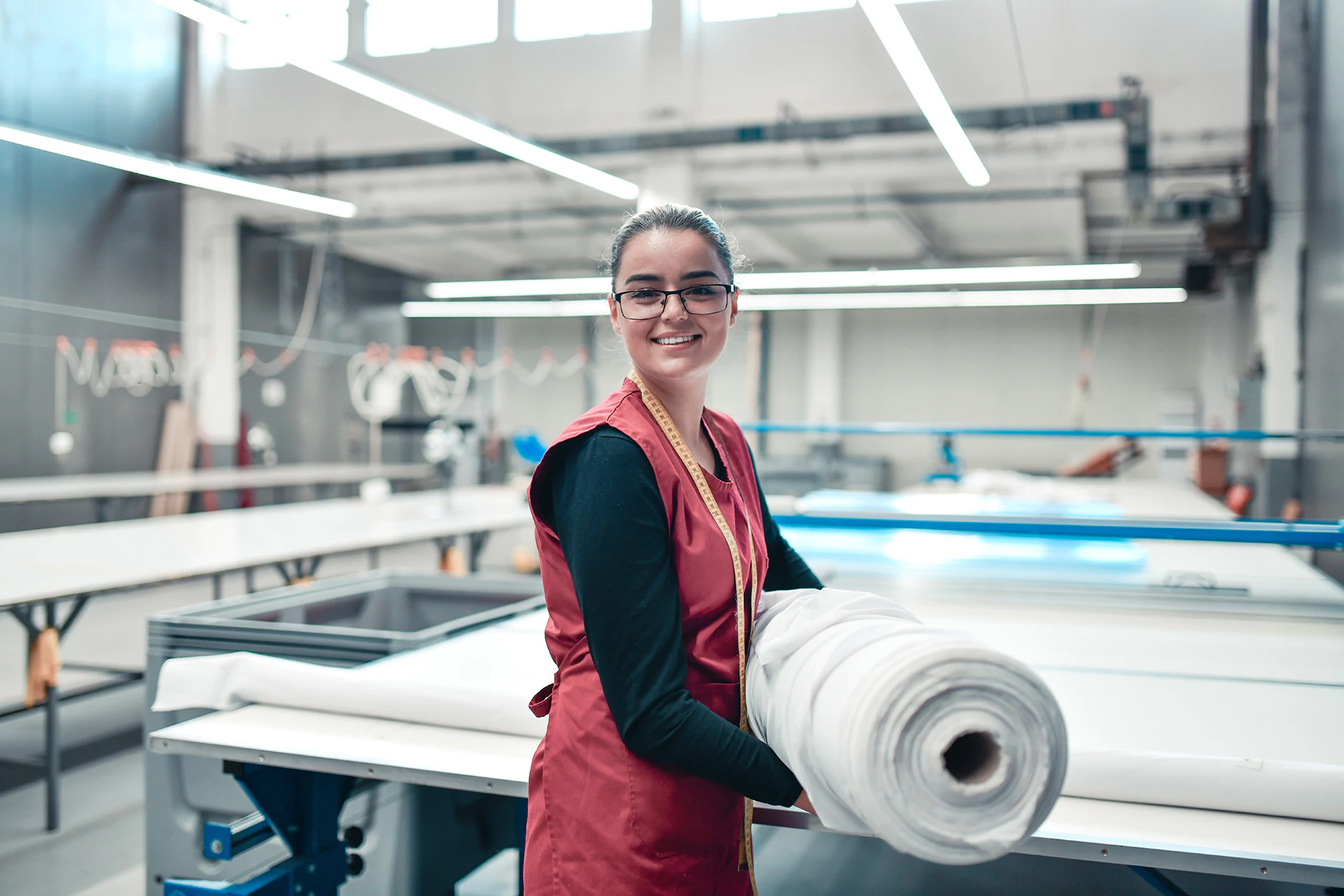
Textile sourcing is the first step every company must face if it wants to ensure the quality and profitability of its production. Whether it’s for fashion, accessories, footwear, or packaging, finding the right supplier allows you to manage the supply chain in a responsible and controlled manner.
Today, the textile industry faces several increasingly critical challenges: working conditions, environmental impact, the entire issue of raw materials, and delivery times. More and more sourcing opportunities are emerging on the Asian market, but also through the growth of made-in-France or European textile production—short supply chains designed to support local industry. Based on this context, the question becomes: how do you choose the best textile solution? What are the steps to follow? And what criteria should be considered?
Understanding Textile Sourcing and Its Challenges
Textile sourcing refers to the process of searching for and identifying partners capable of meeting a textile-related need. This involves finding suppliers of fabrics, yarns, and raw materials. Sourcing applies to all businesses, including ready-to-wear manufacturers, producers of technical garments, promotional items, and any company involved in the high-end textile sector.
Finding a supplier requires consideration of several factors, including quality standards, delivery times, production costs, and environmental parameters. Indeed, sustainable sourcing is a growing concern among companies that purchase these products. Today, local and recycled raw materials are available to help reduce the carbon footprint of finished goods production.
Identifying the Right Criteria for Choosing a Textile Supplier
There are several key steps in the procurement process that determine the reliability of a textile supplier. First, the high quality of the fabrics and additional materials (buttons, labels, zippers) allows products to enter the premium market segment. In addition, companies must trust that their partners comply with environmental and social standards, which is a hallmark of ethical sourcing.
Another critical requirement is timely delivery. This is especially crucial for clothing collections, where strict timing is essential throughout the design and production chain. Therefore, suppliers must meet the specific production needs of a company and ensure the necessary capacity for a given order volume.
Lastly, the origin of the fabrics also matters. While the “Made in France” label is associated with independence and high quality, production capacity is limited and prices are relatively high.
Where and How to Source Raw Materials and Suppliers?
Textile companies have several channels for finding suppliers. Trade shows are a great way to meet manufacturers in person and discover innovations in the fabric and accessories industry. Buyers can also use online platforms to search for qualified partners that meet their needs.
Many textile businesses work with factories in Europe or Asia, depending on their sourcing strategy. Another key factor is verifying the manufacturers’ labor practices and certifications. Only those who comply with regulations on waste management and environmental impact can ensure responsible production.
The Importance of Monitoring and Quality Control
Textile sourcing should not stop at supplier selection. To guarantee product and finished goods quality, thorough follow-up is necessary. On one hand, requesting samples is essential to validate the materials and finishes. On the other hand, a detailed technical file must be created to establish quality standards early in the process and reduce the risk of errors. Moreover, quality control should take place both before and after production to ensure compliance with predefined standards.
Additionally, quality now also includes the environmental impact of products. Companies engaged in ethical fashion are encouraged to limit material consumption and favor reclaimed fabrics. Certain textiles that are less polluting and less resource-intensive should also be prioritized to reduce environmental impact. Considering the end-of-life stage of garments is part of the “sustainable fashion” approach, which is increasingly demanded by consumers and is becoming essential for any responsible brand.
Optimizing Textile Sourcing for a Successful Project
Successful textile sourcing requires solid organization and smart supplier selection. Depending on the type of textile, brand positioning, and project goals, several sourcing approaches are possible. For example, sourcing within Europe provides better traceability and higher quality, which is often valued in high-standard industries.
Partnering with suppliers who offer organic cotton, recycled polyester, or other low-impact materials also supports eco-responsible production. Assessing working conditions at supplier sites is another critical aspect of ethical sourcing. Finally, professional trade fairs remain an excellent opportunity to meet innovative manufacturers, discover new materials, and fine-tune your sourcing strategy according to trends and market expectations.



